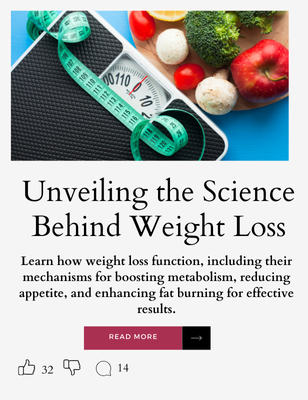Good nutrition plays a vital role in maintaining strong, healthy teeth. The right diet can help prevent dental issues, improve oral health, and promote overall wellness.
This blog post dives into ten effective nutrition strategies that support dental health, ensuring readers can make informed choices for their smiles.
Eating a balanced diet filled with specific nutrients can lead to better oral health.
Everyone can benefit from learning how certain foods and vitamins can contribute to healthy teeth and gums.
These strategies will not only help in preventing cavities but will also enhance the overall appearance of teeth.
Adopting a dental diet means being mindful of food choices and understanding how they affect oral health.
Readers will explore simple yet impactful dietary adjustments that can lead to lasting benefits for teeth and gums.
Key Takeaways
- Proper nutrition is essential for preventing dental problems.
- Specific vitamins and minerals support oral health effectively.
- Mindful eating habits can lead to stronger teeth and gums.
Understanding Oral Health and Nutrition
Nutrition plays a vital role in maintaining good oral health. The foods and drinks consumed directly impact the condition of teeth and gums.
A balanced diet can prevent issues like tooth decay, while poor nutrition can lead to dental problems.
The Relationship Between Diet and Dental Health
A nutritious diet contributes significantly to dental health. Important vitamins and minerals, such as calcium and vitamin D, help maintain strong teeth.
Foods rich in these nutrients include dairy products, leafy greens, and fish.
Additionally, foods high in antioxidants, like fruits and vegetables, support gum health.
A balanced mix of nutrients helps the body fight infections, which can affect oral health.
Good hydration is also essential. Drinking water aids saliva production, which helps wash away food particles and neutralizes acids in the mouth.
Nutrition’s Role in Preventing Tooth Decay
Tooth decay occurs when bacteria in the mouth produce acids that attack tooth enamel. Proper nutrition can combat this process.
Whole foods like whole grains and protein-rich items can keep teeth strong.
Including fiber-rich foods, such as fruits and vegetables, helps in oral health by promoting saliva flow. Saliva is crucial as it contains minerals that can rebuild enamel.
Foods high in phosphorus, like eggs and nuts, also support enamel strength.
Frequent snacking on unhealthy foods can increase the risk of cavities. Limiting processed foods and focusing on nutritious options helps maintain a healthy mouth.
Impact of Sugar Intake on Oral Health
Sugar plays a major role in tooth decay. Bacteria in the mouth feed on sugars and produce acids that harm enamel.
Added sugars from candies, sodas, and baked goods are particularly harmful.
Sticking to natural sugars found in fruits is a healthier choice.
It is important to minimize sugary snack consumption, as frequent exposure to sugar raises the risk of cavities.
Reading food labels helps identify hidden sugars in everyday items. Foods that seem healthy may still contain high amounts of added sugars that can undermine dental health.
Reducing sugar intake will greatly benefit overall dental well-being.
Macro- and Micronutrients Essential for Dental Health
A balanced diet supports dental health through essential macro- and micronutrients. Key nutrients such as calcium, vitamins, and minerals play specific roles in maintaining strong teeth and healthy gums.
Calcium and Phosphorus for Tooth Strength
Calcium is crucial for building and maintaining strong teeth. It helps to strengthen tooth enamel, which protects against decay.
Foods rich in calcium include dairy products, leafy greens, and almonds.
Phosphorus works alongside calcium to enhance tooth strength. It aids in the formation of bones and teeth.
Sources of phosphorus include meat, fish, eggs, and nuts.
Together, calcium and phosphorus form a strong defense against dental issues. They work to remineralize enamel and keep teeth healthy.
The Benefits of Vitamins for Gums and Teeth
Vitamins play a vital role in dental health. Vitamin C is important for the gums. It helps to heal gum tissue and prevent gum disease.
Citrus fruits, strawberries, and bell peppers are rich sources of vitamin C.
Vitamin D helps the body absorb calcium, making it essential for strong teeth and bones.
Sunlight exposure and foods like fatty fish and egg yolks provide this vitamin.
Vitamin A supports mucous membranes in the mouth and is important for overall oral health.
Carrots, sweet potatoes, and spinach are good sources.
Trace Minerals and Their Effects on Dental Health
Trace minerals like fluoride, zinc, and iron contribute to dental health in significant ways.
Fluoride helps to rebuild and strengthen tooth enamel. It reduces the risk of cavities.
Many toothpastes and drinking water contain fluoride.
Zinc supports immune function, helping to combat gum disease. It can be found in meat, shellfish, and whole grains.
Iron is important for blood health, which supports gum tissue.
A diet rich in lean meats, beans, and dark leafy greens can provide adequate iron.
Including a variety of these nutrients in the diet promotes strong teeth and healthy gums.
The Key Role of Vitamins in Oral Health
Vitamins are crucial for maintaining oral health. They support gum health, help prevent disease, and protect teeth from damage. Understanding the role of vitamins can lead to better dental care.
Vitamin C and Gum Disease Prevention
Vitamin C is essential for healthy gums. It helps the body produce collagen, which keeps gum tissue strong.
A lack of vitamin C can lead to gum disease, also called periodontal disease. Symptoms include swollen gums, bleeding, and discomfort.
Foods rich in vitamin C include citrus fruits, strawberries, and bell peppers.
Regular consumption of these foods can improve gum health. Maintaining adequate vitamin C levels can also enhance healing after dental procedures.
To support oral hygiene, individuals should focus on getting enough vitamin C daily. This simple step can lead to healthier gums and a lower risk of gum disease.
The Protective Effect of Vitamin D
Vitamin D plays a key role in oral health by promoting calcium absorption. Calcium is crucial for strong teeth and bones.
Without enough vitamin D, the body may struggle to absorb calcium effectively, which can lead to weaker teeth.
Research shows a link between low vitamin D levels and increased risk of gum disease.
Sunlight is a natural source of vitamin D, but it can also be found in fatty fish, egg yolks, and fortified foods.
Including vitamin D in the diet can help improve oral health. Individuals should aim for adequate sunlight exposure and consider dietary sources to support their needs.
Antioxidant Properties of Vitamin A
Vitamin A is important for maintaining healthy mucous membranes in the mouth. These membranes protect the oral cavity from bacteria and infections.
A deficiency in vitamin A can lead to dry mouth and an increased risk of cavities.
Foods high in vitamin A include carrots, sweet potatoes, and leafy greens.
These foods provide antioxidants, which help fight free radicals. Free radicals can damage cells in the mouth, leading to oral health issues.
Ensuring sufficient vitamin A intake can contribute to better oral hygiene. This vitamin supports overall health and can protect against various dental problems.
Strategies for Managing Sugar and Carbohydrate Intake
Controlling sugar and carbohydrate intake is essential for maintaining healthy teeth. Different types of carbohydrates can affect dental health in various ways. Understanding these factors helps in making better dietary choices.
Understanding Carbohydrates and Oral Health
Carbohydrates are found in many foods and drinks. They can be classified into two main types: simple and complex.
Simple carbohydrates, such as sugary snacks and refined grains, can cause rapid spikes in blood sugar and can lead to dental caries.
Complex carbohydrates, found in whole grains, vegetables, and legumes, are slower to digest and generally more beneficial.
Fermentable carbohydrates, like sugar and some starches, can be harmful to teeth. When bacteria in the mouth digest these carbohydrates, they produce acids that can erode tooth enamel. This can lead to cavities over time.
It’s crucial to be mindful of both the type and amount of carbohydrates consumed to protect dental health.
Sugar Alcohols and Dental Caries
Sugar alcohols are a popular alternative to sugar. Common examples include xylitol, sorbitol, and erythritol. They have fewer calories and do not cause as much harm to teeth as regular sugar.
In fact, xylitol has been shown to reduce the levels of decay-causing bacteria in the mouth.
Unlike sugar, sugar alcohols are not fermented by oral bacteria. This means they do not contribute to acid production that leads to dental caries.
Choosing products with sugar alcohols can be a smart way to satisfy sweet cravings without harming teeth.
Lowering Sugary Foods and Beverages Consumption
Reducing intake of sugary foods and drinks is vital for oral health.
Soda and other sugar-sweetened beverages are significant sources of free sugar. They can be damaging to teeth because they do not just contain sugar, but also acids that can contribute to enamel erosion.
To lower sugary consumption, one can follow these tips:
- Limit soda and sugary drinks: Opt for water or unsweetened beverages instead.
- Choose whole fruits over fruit juices: Whole fruits have fiber that helps reduce sugar absorption.
- Read labels: Many packaged foods contain hidden sugars.
- Plan balanced meals: Include proteins and healthy fats to fill up, reducing the urge for sugary snacks.
By applying these strategies, individuals can manage their carbohydrate intake effectively for better dental health.
Foods and Nutrients That Promote Oral Health
A balanced diet plays an essential role in oral health. Certain foods and nutrients can strengthen teeth and gums, helping to prevent decay and disease. Here are key components for a healthy mouth.
Fiber-Rich Fruits and Vegetables for a Healthy Mouth
Fruits and vegetables that are high in fiber are beneficial for oral health. These foods help to clean teeth naturally while chewing, which can remove plaque.
Examples of fiber-rich options include:
- Apples
- Carrots
- Celery
These options stimulate saliva production, which neutralizes acid and protects against cavities. Crunchy vegetables and fruits provide the body with vitamins while also being low in sugar, making them excellent for oral hygiene.
Protein, Omega-3s and Healthy Fats
Protein is essential for repairing tissues and maintaining healthy gums. Foods rich in protein, such as lean meats, fish, eggs, and legumes, can support gum health.
Omega-3 fatty acids are also crucial. They reduce inflammation and promote gum health.
Good sources of omega-3s include:
- Fatty fish (like salmon)
- Walnuts
- Chia seeds
Healthy fats help the body absorb fat-soluble vitamins, which are important for maintaining strong teeth.
Role of Dairy and Alternative Sources in Oral Health
Dairy products, such as milk, cheese, and yogurt, are excellent for oral health. They are high in calcium, a mineral necessary for strong teeth and bones.
Cheese, in particular, can help reduce cavity risk. It raises saliva production and balances pH levels in the mouth.
For those who prefer alternatives, fortified plant-based milks can provide similar nutrients. Look for options fortified with calcium and vitamin D to support oral health effectively.
Nutritional Considerations for Specific Groups
Different age groups have unique nutritional needs that directly affect their oral health. Understanding these needs helps maintain healthy teeth and gums throughout life.
Dietary Guidelines for Children’s Oral Health
Children require specific nutrients for healthy teeth. Calcium and vitamin D are vital for developing strong teeth and bones.
Foods rich in calcium include milk, yogurt, and leafy greens. Vitamin D helps the body absorb calcium and can be found in fortified foods and sunlight.
Snack options for children should be balanced. Fruits, vegetables, and whole grains are excellent choices.
Limiting sugary snacks and drinks can prevent early childhood caries. Encouraging good oral hygiene habits alongside proper nutrition is important for lifelong dental health.
Regular dental check-ups should also be part of their routine.
Nutritional Needs for Adult Dental Care
Adults need to focus on maintaining their dental health through a balanced diet. Nutrient-dense foods such as fruits, vegetables, lean proteins, and whole grains are essential.
Phosphorus and vitamin C are important as well. Phosphorus helps repair tooth enamel, while vitamin C supports gum health.
Staying hydrated by drinking plenty of water is crucial. It helps wash away food particles and bacteria from the mouth.
Adults should minimize sugary foods and beverages to reduce the risk of tooth decay. Regular dental visits can aid in preventing and addressing any potential issues.
Addressing Malnutrition and Oral Health in the Elderly
Malnutrition in the elderly can seriously affect oral health. Many older adults face difficulties in chewing and swallowing, making it hard to consume nutrient-dense foods.
Soft foods that are easy to chew, like mashed potatoes and smoothies, can help.
Key nutrients are essential for maintaining dental health. Vitamin B12 supports the health of oral tissues. Additionally, fiber aids digestion and can be found in fruits, vegetables, and whole grains.
It is important for the elderly to adhere to a balanced diet while considering any dental issues. Regular dental check-ups can identify problems early and help manage dietary habits for better overall health.
Dental Problems Linked to Poor Nutrition
Eating habits have a direct impact on oral health. Poor nutrition can lead to dental issues such as periodontal disease, inflammation, and other chronic diseases that affect the mouth. Understanding these connections can help in maintaining healthy teeth and gums.
Connections Between Periodontal Diseases and Malnutrition
Periodontal disease is an infection that affects the gums and bone supporting the teeth. Malnutrition can weaken the immune system, making it harder for the body to fight infections, including those in the mouth.
A diet lacking in essential nutrients, like vitamin C, can slow healing and contribute to gum problems.
Signs of periodontal disease include swollen gums, bad breath, and receding gums. Adequate nutrition is key to preventing these issues and promoting recovery.
Obesity, Inflammation, and Oral Health
Obesity can increase inflammation throughout the body, including the mouth. This inflammation may aggravate gum disease and lead to further complications.
People with obesity may not prioritize healthy eating, affecting their oral hygiene as well.
A high-sugar diet can also contribute to weight gain and dental caries. Managing weight through proper nutrition helps lower inflammation and supports better oral health.
Maintaining a balanced diet can effectively help in preventing both obesity and dental problems.
Nutrition-Related Chronic Diseases Affecting Oral Health
Chronic diseases like diabetes and cardiovascular disease can have consequences for oral health. People with diabetes are more susceptible to gum disease due to high blood sugar levels.
Effective blood sugar control is important to prevent oral complications.
Cardiovascular disease has also been linked to poor oral health. Inflammation from gum disease may contribute to heart disease.
Eating a nutritious diet can reduce the risk of these chronic diseases while supporting healthy teeth and gums.
Oral Hygiene Practices to Support a Dental Diet
Maintaining good oral hygiene is key to supporting a dental diet. Simple practices like brushing and flossing play a critical role. Nutrition also impacts oral health, influencing how teeth react to plaque. Choosing the right dental products can further enhance protection.
The Basics of Brushing and Flossing
Brushing teeth at least twice a day is essential for removing food particles and dental plaque. A soft-bristled toothbrush is recommended to avoid damaging gums.
The use of fluoride toothpaste helps strengthen enamel and protects against cavities.
Flossing daily is just as important. It removes plaque and food stuck between teeth where brushes cannot reach.
Proper technique involves using about 18 inches of floss and gently sliding it between each tooth. Regular brushing and flossing can sustain teeth health over time.
Enhancing Oral Care with Nutritional Choices
Certain foods and drinks can aid or harm oral health. Dairy products like yogurt and cheese contain calcium and phosphorus, which support enamel remineralization.
Leafy greens and crunchy fruits and vegetables can help clean teeth naturally while providing essential nutrients.
Sugar can contribute to dental demineralization, leading to cavities. It’s important to limit sugary snacks and drinks.
Drinking water, especially fluoride-infused water, can help rinse away food particles and bacteria. These dietary choices significantly impact oral hygiene effectiveness and overall dental health.
Selecting Dental Care Products for a Nutrient-Optimized Routine
Choosing the right dental care products can make a difference. Look for toothpaste that contains fluoride, which promotes remineralization of enamel.
Mouthwash with antimicrobial properties can reduce plaque build-up and freshen breath.
Dental sealants are also a good option. They’re thin coatings that protect the chewing surfaces of back teeth from decay.
Using these products consistently helps build a strong routine to support oral hygiene and overall oral health over time.
Innovative Approaches and Remedies in Dental Nutrition
New findings highlight the importance of specific foods and ingredients that can help support dental health. Certain natural sweeteners, herbs, and functional foods play a crucial role in promoting healthier teeth and gums.
Natural Sweeteners and Their Role in Oral Health
Xylitol is a plant-based sweetener that can benefit oral health. It helps reduce the amount of decay-causing bacteria in the mouth.
Unlike sugar, xylitol does not feed harmful bacteria, making it a safer choice for sweetening foods and drinks.
Another natural sweetener is erythritol, which also has properties that can protect teeth. Using these sweeteners in recipes can promote a healthier smile.
Instead of regular sugar, recipes for baked goods or smoothies can easily include xylitol or erythritol.
Cranberries are another excellent food. They contain compounds that inhibit bacteria from sticking to teeth.
Including unsweetened cranberry juice in a diet can help reduce the risk of cavities.
Herbal and Plant-Based Contributions to Dental Care
Leafy greens, such as spinach and kale, offer numerous benefits for oral health. They are rich in vitamins and minerals, which help strengthen teeth and gums.
These greens also have a high water content, assisting in washing away food particles gently.
Certain herbs like sage and peppermint are beneficial as well. Sage has antibacterial properties, while peppermint helps freshen breath.
Incorporating these herbs into teas or salads can offer added dental health benefits.
Oils from plants such as clove and tea tree can be used in oral care. Clove oil is known for its calming effects on toothaches, while tea tree oil has antiseptic properties.
These oils can be added to homemade mouth rinses for extra protection.
Functional Foods and Recipes for a Dental Diet
Functional foods are those that provide health benefits beyond basic nutrition. Foods like yogurt contain probiotics that can enhance oral health. They help balance bacteria levels in the mouth, reducing the risk of cavities.
Recipes that include nuts, seeds, and whole grains can also support dental health.
For example, a snack mix with almonds, sunflower seeds, and dried cranberries offers nutrients that benefit teeth.
Smoothies can be made with spinach, yogurt, and xylitol for sweetness. This offers vitamins and minerals while tasting delicious.
These recipes make it easier to enjoy food that also promotes better oral hygiene.
The Future of Oral Health: Trends and Advances
New research and technologies are shaping the future of oral health. Advancements focus on improving dietary recommendations and personalizing care based on individual needs. These changes can lead to better dental health for everyone.
Research Developments in Nutritional Oral Health
Recent research highlights the link between diet and oral health. Studies show that nutrient-dense foods can support healthier teeth and gums.
Foods high in fiber, vitamins, and minerals are essential.
For example, foods rich in calcium and vitamin D strengthen enamel. Lowering sugar intake also helps prevent tooth decay. Moreover, fluoridated water continues to play a vital role in reducing cavities.
Researchers are exploring the impact of specific diets, like the Mediterranean diet, on oral health. This diet emphasizes fruits, vegetables, nuts, and whole grains.
Collectively, these findings inform dental professionals and the public about better food choices.
Biotechnology in Dentistry and Personalized Nutrition
Biotechnology is revolutionizing how dental care is approached. New tools and techniques allow for personalized nutrition plans tailored to individual needs.
Genetic testing may identify specific dietary requirements for better oral health.
For instance, some people may benefit from more fluoride, while others may need more calcium. This strategy can help create effective dietary guidelines that reflect individual health conditions.
Additionally, advances in oral microbiome research are uncovering how bacteria affect dental health.
Understanding these dynamics can lead to targeted dietary recommendations that support beneficial bacteria while reducing harmful ones.
Evolving Dietary Recommendations and Oral Health Policies
As research grows, dietary recommendations continue to change. Policymakers aim to guide the public toward healthier choices that support oral health.
These recommendations often stress reducing sugary snacks and increasing nutrient-dense foods in diets.
Current guidelines emphasize the importance of a balanced diet for overall health, which includes dental well-being.
Schools and communities promote access to fluoridated water as part of public health initiatives.
Moreover, awareness campaigns educate the public about the connection between diet and oral health. This shifts the focus from solely dental treatments to preventive care through nutrition and healthy eating habits.
Frequently Asked Questions
Many people want to know how diet affects dental health. The questions below cover key nutrients, foods to eat, and foods to avoid for maintaining strong teeth and gums.
What foods should you eat regularly to promote strong dental health?
Eating foods rich in vitamins and minerals is important for dental health. Foods like fruits, vegetables, dairy products, lean proteins, and whole grains support strong teeth and gums.
Crunchy fruits and vegetables, such as apples and carrots, can help clean teeth naturally.
How does vitamin D contribute to oral wellness?
Vitamin D plays a crucial role in teeth health by helping the body absorb calcium.
This vitamin can be found in foods such as fatty fish, egg yolks, and fortified dairy products. Getting enough sunlight also boosts vitamin D levels.
What role does calcium play in maintaining strong teeth?
Calcium is essential for strong teeth and bones. It helps to rebuild tooth enamel and supports jawbone health.
Dairy products like milk and cheese, as well as leafy greens and almonds, are good sources of calcium.
Are there specific foods to avoid for better dental health?
Certain foods can be harmful to dental health. Sugary snacks and drinks can lead to tooth decay.
Acidic foods and drinks, such as sodas and citrus fruits, can wear down enamel over time.
How can diet help in the prevention of tooth decay?
A balanced diet can help prevent tooth decay by reducing sugar intake. Eating plenty of fiber-rich foods can also help clean teeth naturally.
Drinking water, especially fluoridated water, supports overall oral health.
What dietary changes can support tooth enamel repair?
Tooth enamel can benefit from a diet high in minerals and vitamins.
Foods that are high in calcium and vitamin D can aid in enamel repair.
Reducing acidic and sugary foods can also prevent further damage to enamel.

















